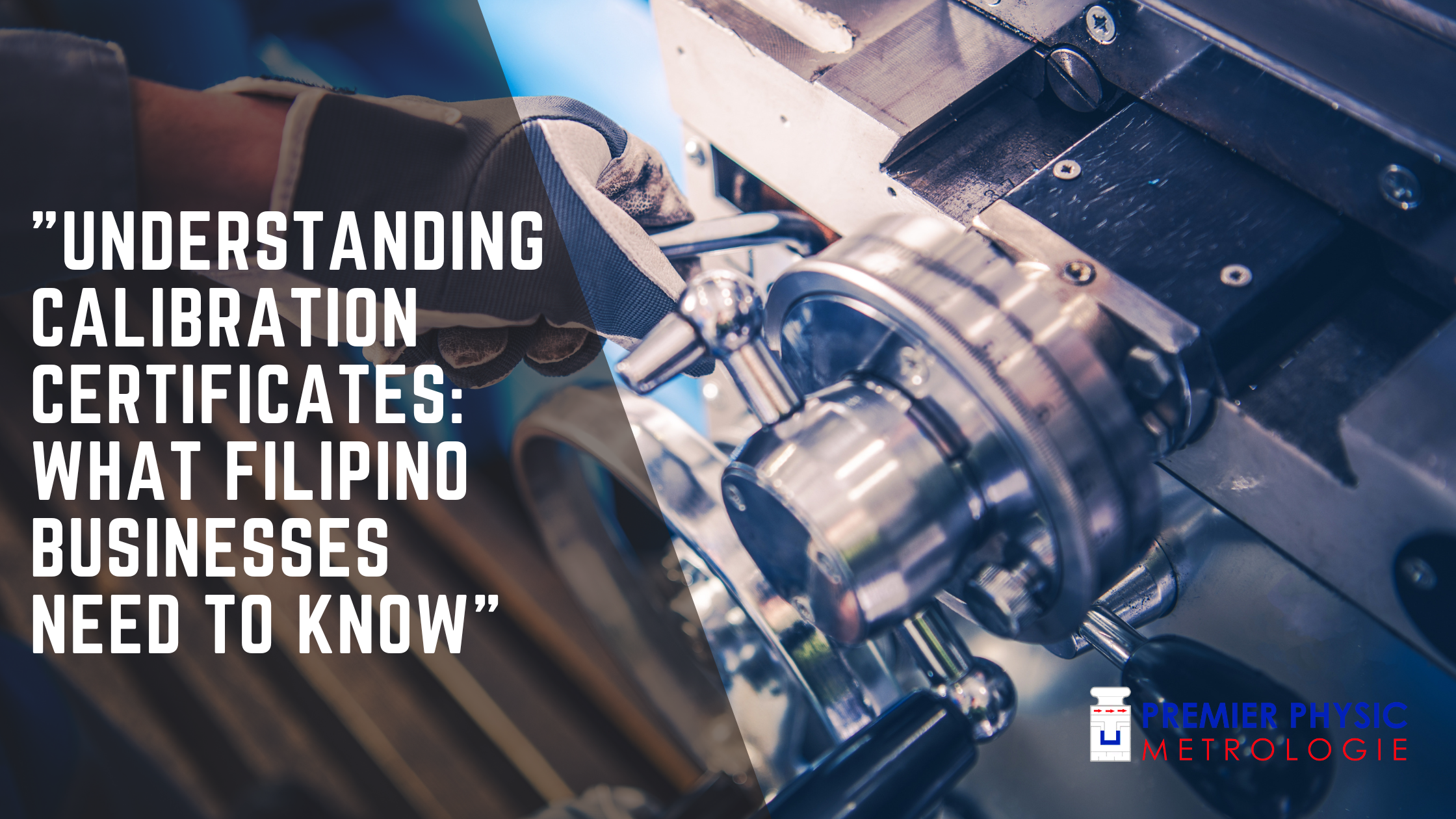Introduction
Calibration certificates play a vital role in various industries, ensuring that measuring instruments and equipment deliver accurate and reliable results. For Filipino businesses, understanding calibration certificates is crucial for maintaining quality assurance, compliance, and efficient operations. In this article, we explore the essential aspects of calibration certificates, their significance, and what Filipino businesses need to know about them.
What are Calibration Certificates?
Calibration certificates are official documents that provide a comprehensive record of the calibration process undergone by measuring instruments and equipment. These certificates confirm the accuracy and precision of the instruments and ensure they meet industry standards and regulatory requirements.
The Importance of Calibration Certificates for Filipino Businesses
Calibration certificates are integral to Filipino businesses for several reasons:
- Quality Assurance: Calibration certificates validate the accuracy of measuring instruments, ensuring the delivery of high-quality products and services.
- Compliance: Many industries in the Philippines have specific regulations and standards that require calibration for certain instruments. Calibration certificates help businesses comply with these requirements.
- Customer Confidence: Calibration certificates enhance customer confidence in the accuracy and reliability of the products and services offered by businesses.
- Legal Compliance: In some cases, calibration is a legal requirement, and certificates provide evidence of compliance.
The Components of Calibration Certificates
Calibration certificates contain essential information that helps businesses understand the calibration process and its results. The key components include:
- Business Information: The name, address, and contact details of the business requesting the calibration.
- Instrument Details: The make, model, serial number, and other relevant information about the instrument being calibrated.
- Calibration Date: The date on which the calibration took place.
- Calibration Procedure: A detailed description of the calibration procedure followed.
- Calibration Results: The measured values, uncertainties, and deviations observed during the calibration process.
- Traceability Information: Information about the reference standards used for calibration and their traceability to national or international standards.
- Calibration Standards and Tolerances: The specific standards and tolerances against which the instrument was calibrated.
The Calibration Process Explained
Understanding the calibration process is essential for businesses to comprehend the significance of calibration certificates:
- Selecting a Calibration Laboratory: Businesses must choose a reputable and accredited calibration laboratory with the necessary expertise and equipment.
- Preparing the Instrument: Before calibration, the instrument must be prepared to ensure it is in good condition and meets any prerequisites specified by the calibration laboratory.
- Calibration Execution: During calibration, the instrument is compared against known reference standards to determine its accuracy.
- Data Analysis: The data collected during calibration is analyzed to assess the instrument’s performance and determine any adjustments required.
- Certificate Issuance: After a successful calibration, the calibration laboratory issues the calibration certificate containing all relevant information.
Calibration Frequency and Interval
Determining the calibration frequency and interval is vital for businesses to maintain accuracy and compliance. Factors influencing the calibration schedule include:
- Manufacturer Recommendations: Many instrument manufacturers provide calibration frequency recommendations based on their products’ intended use.
- Industry Standards: Certain industries have specific calibration requirements and intervals.
- Instrument Usage: Instruments subjected to frequent use or harsh environments may require more frequent calibration.
- Regulatory Requirements: Compliance with industry regulations may dictate calibration frequency.
Navigating Calibration Certificates in Different Industries
Calibration certificates are utilized across various industries in the Philippines:
- Manufacturing: Manufacturers use calibration certificates for process control, quality assurance, and compliance.
- Healthcare: Hospitals and medical facilities rely on calibration certificates for accurate diagnostic and treatment equipment.
- Aviation: The aviation industry mandates calibration certificates for critical instruments and equipment used in aircraft maintenance.
- Engineering: Engineers use calibration certificates to ensure precision in their measurements and designs.
Common FAQs about Calibration Certificates
Q: What is the validity of a calibration certificate? Calibration certificates typically have a validity period, which may vary depending on the instrument type, usage, and industry requirements. Businesses must ensure recalibration within this period to maintain accuracy.
Q: Can I calibrate instruments in-house? In-house calibration is possible, but it requires specialized knowledge, equipment, and traceable standards. Accredited third-party calibration laboratories are often preferred for their expertise and adherence to international standards.
Q: Is calibration necessary for new instruments? Yes, new instruments should be calibrated before use to verify their accuracy and ensure they meet required standards.
Q: How often should I recalibrate my instruments? Recalibration frequency varies based on the instrument type, usage, and industry regulations. Following manufacturer recommendations and industry standards is essential in determining the recalibration schedule.
Q: Can I use a calibration certificate from another country? While some calibration certificates may be recognized internationally, it is crucial to ensure that the calibration was performed by an accredited laboratory, and the certificate adheres to local regulations.
Q: What if my instrument fails calibration? If an instrument fails calibration, it should not be used for critical measurements or applications. Repairs or adjustments may be necessary, followed by recalibration to ensure accuracy.
Conclusion
Calibration certificates are indispensable for Filipino businesses, offering benefits such as quality assurance, compliance, and customer confidence. Understanding the components, significance, and calibration process empowers businesses to make informed decisions about their measuring instruments and equipment. By adhering to industry standards and collaborating with accredited calibration laboratories, Filipino businesses can ensure accurate and reliable operations, strengthening their competitive edge.




